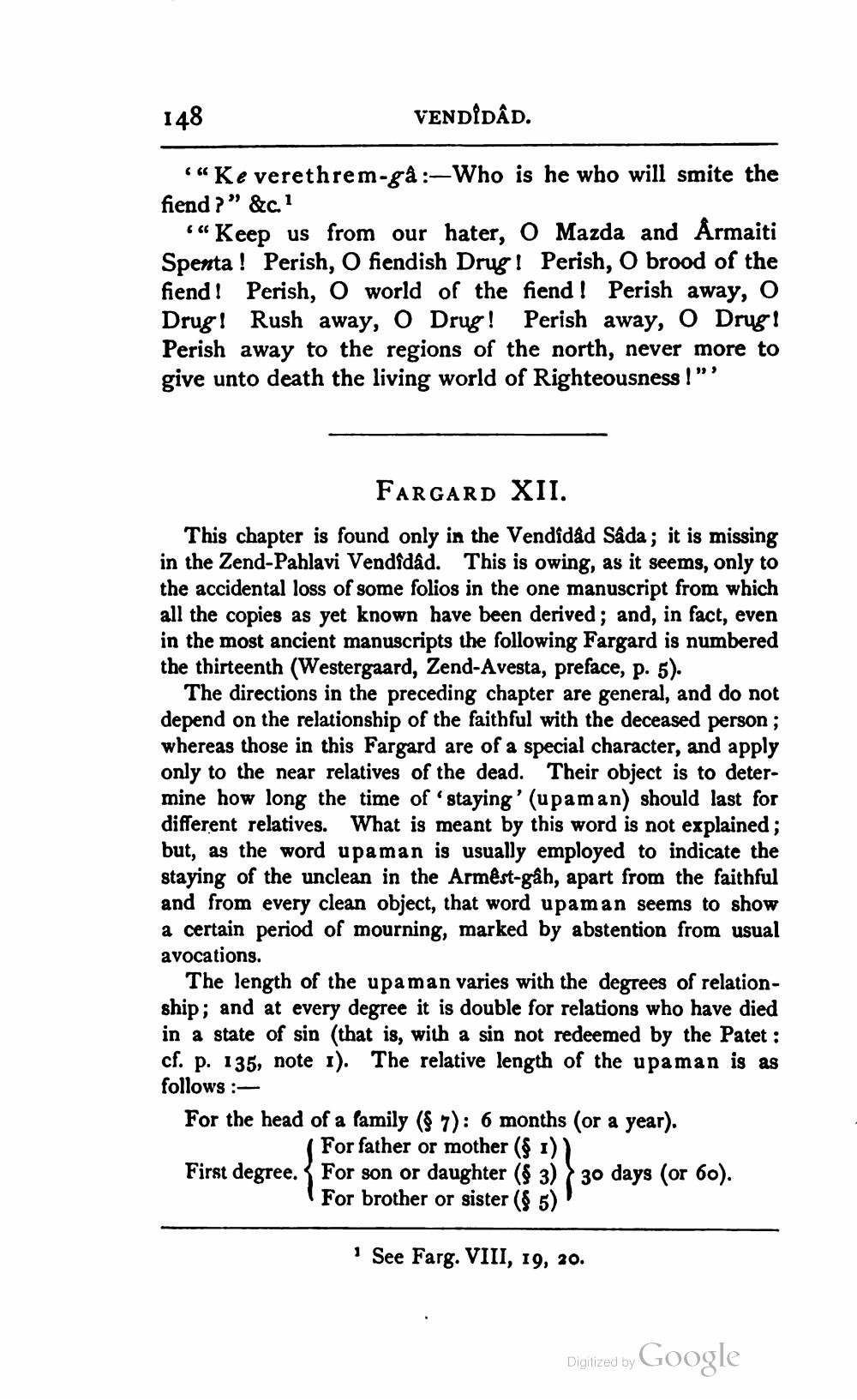________________
148
VENDDÂD.
«« Ke verethrem-gå:-Who is he who will smite the fiend ?" &c. 1
«« Keep us from our hater, O Mazda and Årmaiti Spenta ! Perish, O fiendish Drug! Perish, O brood of the fiend! Perish, O world of the fiend! Perish away, O Drug! Rush away, O Drug! Perish away, O Drug! Perish away to the regions of the north, never more to give unto death the living world of Righteousness !”.
FARGARD XII. This chapter is found only in the Vendidad Såda; it is missing in the Zend-Pahlavi Vendidad. This is owing, as it seems, only to the accidental loss of some folios in the one manuscript from which all the copies as yet known have been derived; and, in fact, even in the most ancient manuscripts the following Fargard is numbered the thirteenth (Westergaard, Zend-Avesta, preface, p. 5).
The directions in the preceding chapter are general, and do not depend on the relationship of the faithful with the deceased person ; whereas those in this Fargard are of a special character, and apply only to the near relatives of the dead. Their object is to determine how long the time of staying' (upaman) should last for different relatives. What is meant by this word is not explained; but, as the word upaman is usually employed to indicate the staying of the unclean in the Armêst-gâh, apart from the faithful and from every clean object, that word upaman seems to show a certain period of mourning, marked by abstention from usual avocations.
The length of the upaman varies with the degrees of relationship; and at every degree it is double for relations who have died in a state of sin (that is, with a sin not redeemed by the Patet : cf. p. 135, note 1). The relative length of the upaman is as follows: For the head of a family ($ 7): 6 months (or a year).
(For father or mother ($ 1) First degree. For son or daughter ($ 3) 30 days (or 60).
(For brother or sister ($ 5)
· See Farg. VIII, 19, 20.
Digitized by Google




